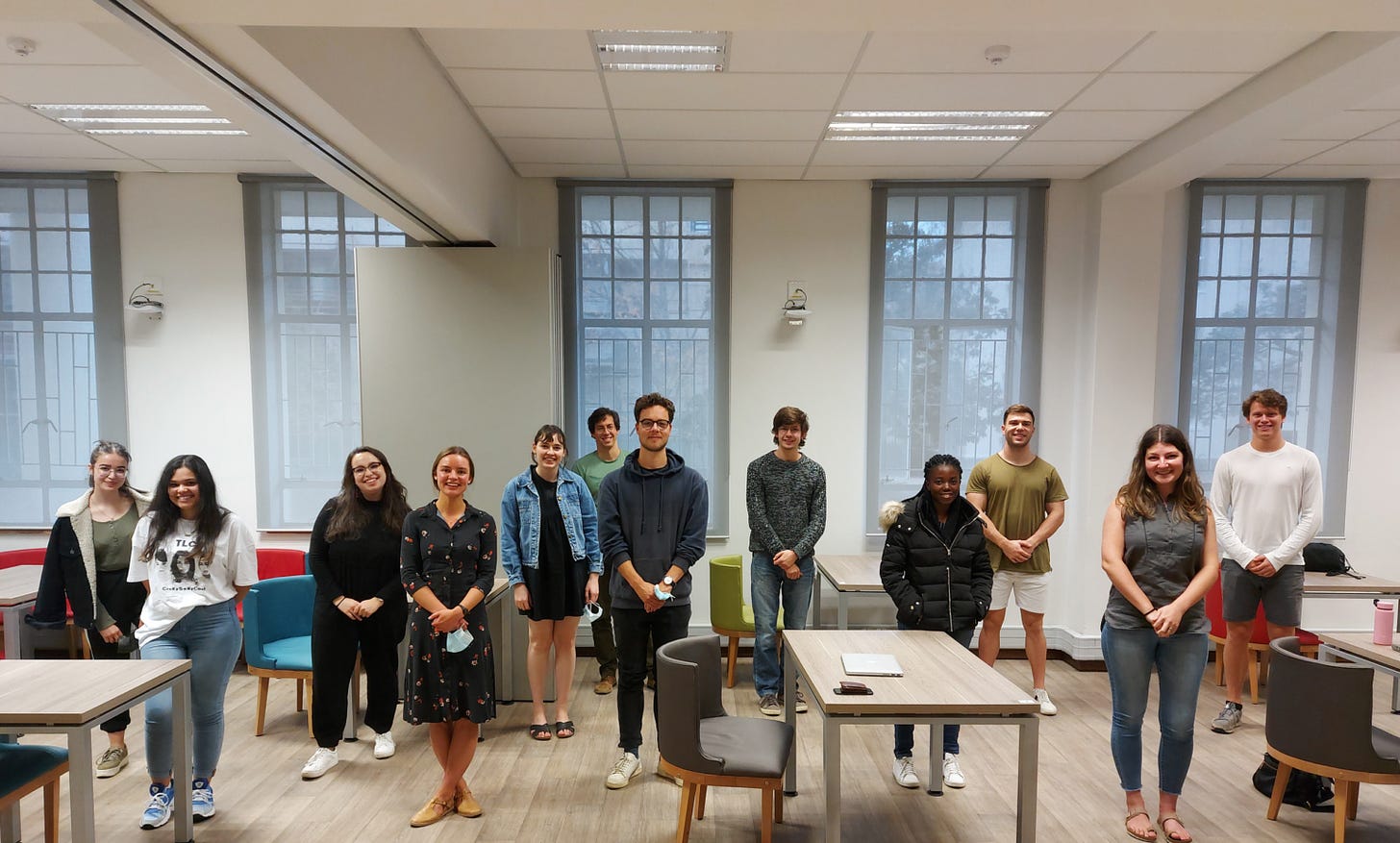Teaching economic history
The graduate economic history class of 2021
Undergraduate classes at Stellenbosch University kicked off last week. Our graduate courses did so a week earlier. It is great to be back in the classroom, and to see students face-to-face. Looking at the high levels of attendance (even for the first week), I suspect the students have a special appreciation for the privilege of actually being in class. Let's hope the effect endures.
I teach both undergraduate and graduate economic history courses. The second-year Economics 281 is a continuous assessment course we created a decade ago to give students in the commerce faculty exposure to economic history and development economics. The course is designed around the big question: Why are some countries/people rich and others poor? I teach the first semester, focusing on lessons from economic history. Our Long Walk to Economic Freedom, a book I wrote during lockdown 2020, is the prescribed text.
At the graduate level, I follow a somewhat different format than any of the other courses. The idea came initially from my former supervisor in Utrecht, Jan Luiten van Zanden. Students are divided into four groups. Each group presents a prescribed paper (10 minutes) and one member from each of the other groups is then requested to comment on the paper (another 10 minutes). We then discuss the paper for the final 10 minutes. We repeat this for all four papers.
Each week we have a different theme for the set of four papers. Last week was the 'Neolithic Revolution', this week it will be the 'Industrial Revolution'. We start with 'Historical Episodes', then move on to the 'Roots of Growth', and finally do 'Hot Topics in Economic History'. I update the list every year, to the extent that very few papers are older than five years. The full reading list of 64 papers can be downloaded here.
The format allows students to gain two valuable skills: presenting, which is something they will do often, and reading critically, which I think is probably the most underappreciated skill in the labour market. It's tough to criticize a paper in the AER or QJE, of course, but I've seen students come up with concerns that merit a letter to the authors to request clarity on certain issues. Working papers often receive particularly harsh criticism. What I'm most proud of is that at least two student essays have been published in academic journals, most recently one on the Spanish flu by Jonathan Jayes and myself in World Development. And several of the students have gone on to do PhDs in economic history/development: at Tübingen (2), Lund (2), UCT (1), and Stellenbosch (at least 4).
The last decade has allowed me to refine the content and format of both courses to such an extent that I strongly belief this model is replicable elsewhere. It's not just that I think economic history is a nice-to-have; I think it should be an essential part of any economics curriculum. At the undergraduate level, students find the microeconomics and macroeconomics too far removed from their real-world experience and, frankly, too boring. Economic history can bring topics such as competition (Robber Barons!) or trade (railroads!) or property rights (barbed wire!) to life. At the graduate level, an ability to argue why certain models are applicable in certain contexts and not others should be a critical skill for any consultant or policymaker in a developing country. Note that this is a complement rather than substitute for standard economics courses; it adds to rather than subtracts from the economist's standard toolkit.
If you would like to see economic history being taught at your university or would like to introduce economic history into the curriculum, I'm happy to chat. The good news is that Our Long Walk to Economic Freedom will soon be published by Cambridge University Press, making it available to universities across the world. (Publication date: July 2022.) I will also share all the slides on the dedicated website. It is written from an African perspective, at the level that would be accessible to any good first-year student. Only a few years ago, in the face of the global financial and Fees Must Fall crisis, student movements in South Africa and elsewhere, demanded a rethinking of economics. An economic history approach is a good place to start, I believe.
Economic history can not only help us make sense of economic theory, but can help guide us to better policies. Let's hope that the publication of Our Long Walk can help economic history gain a foothold in economics programmes at the southern tip of Africa, and elsewhere.


